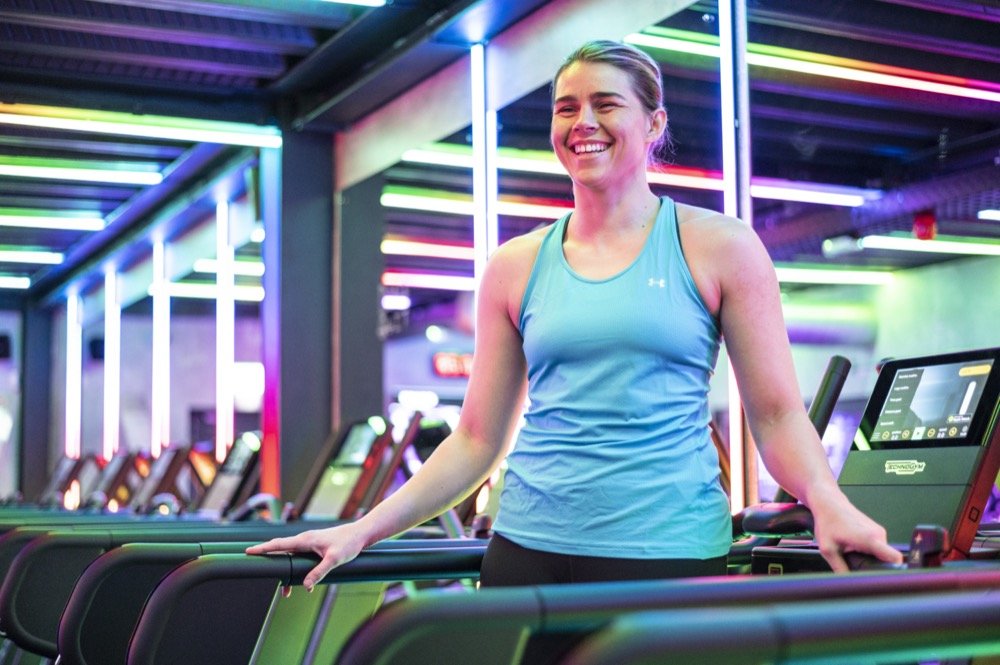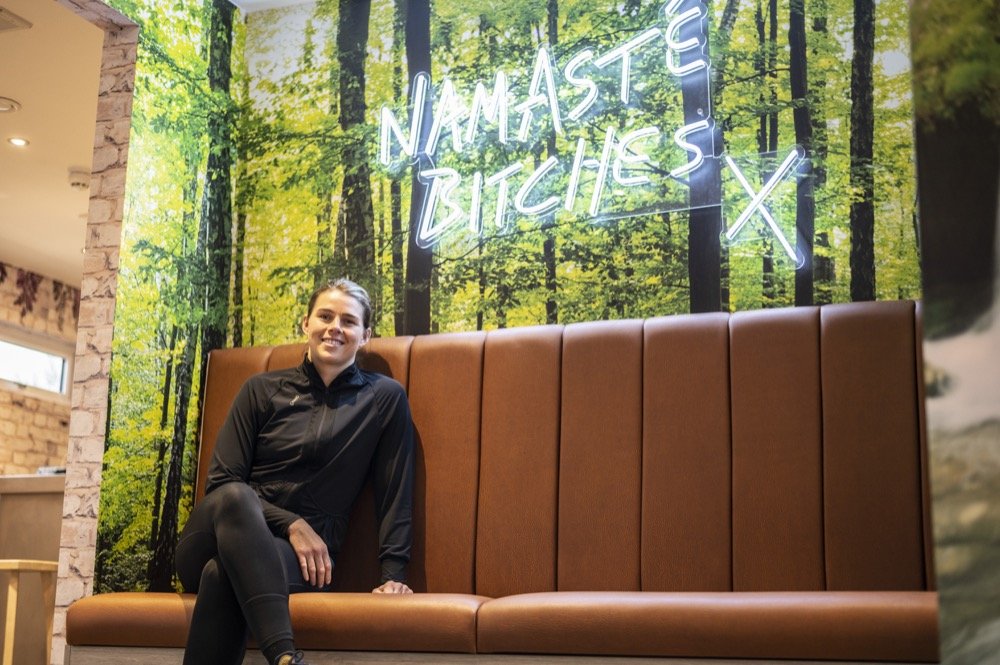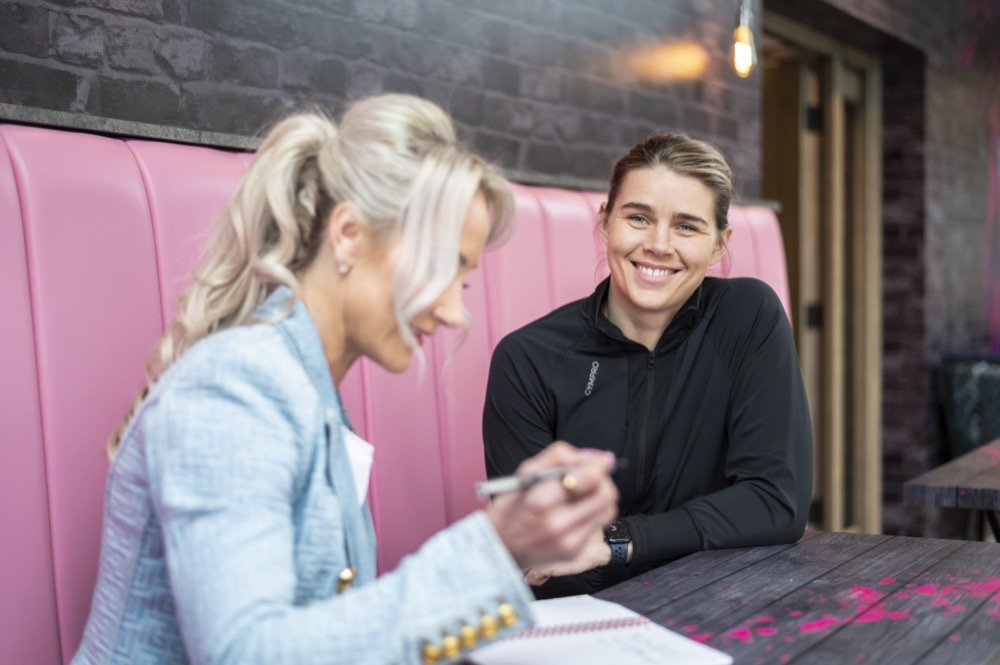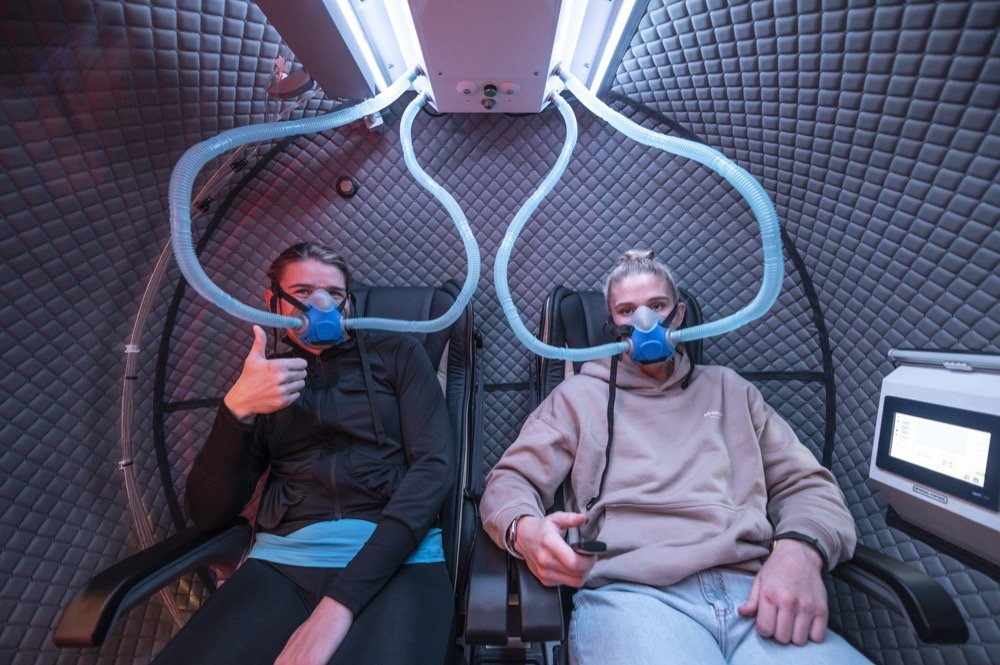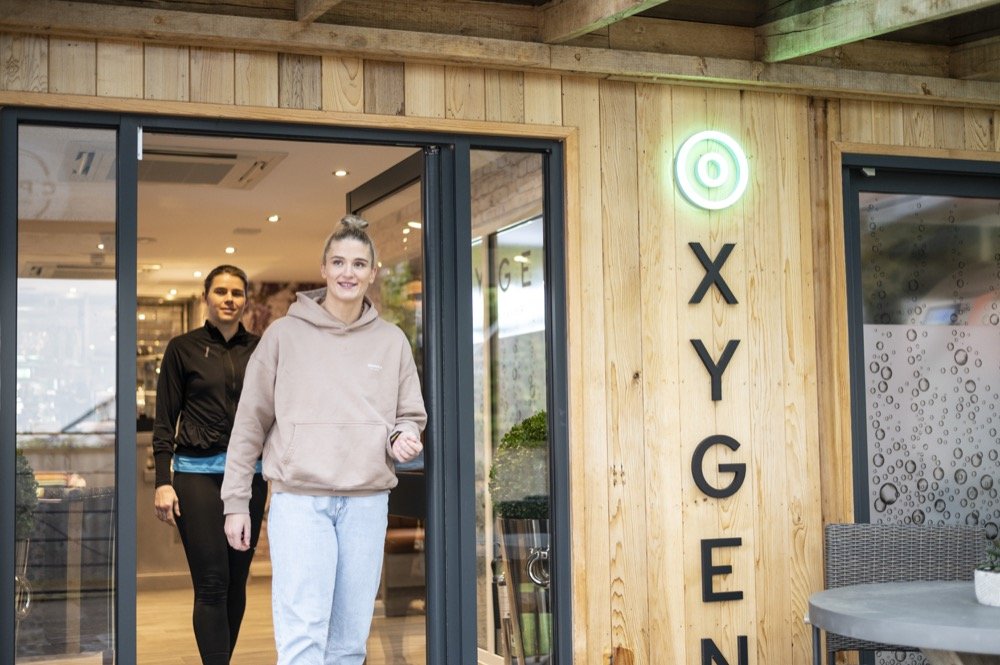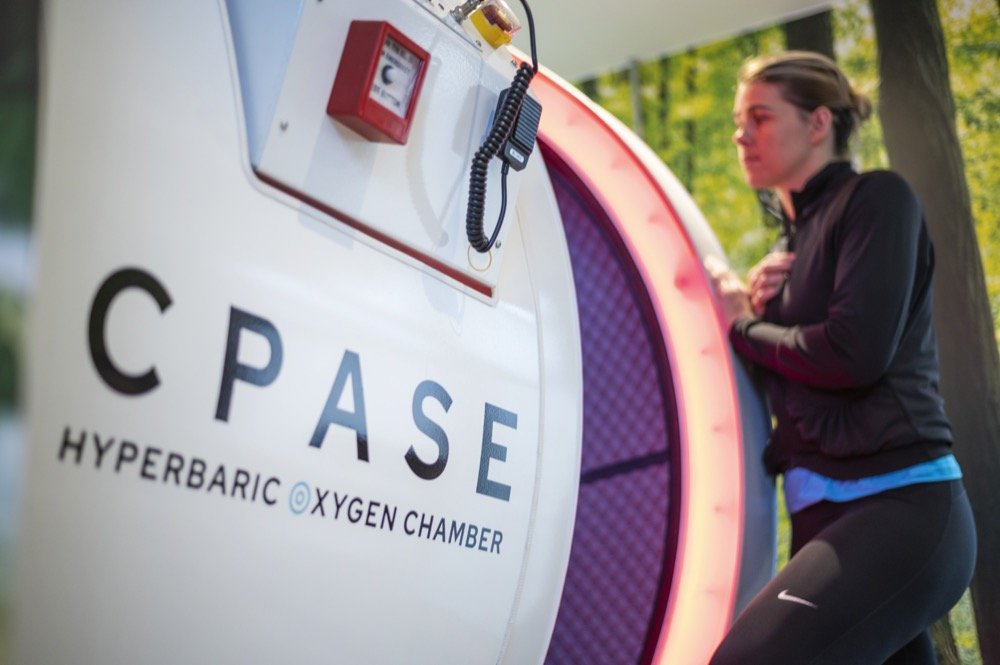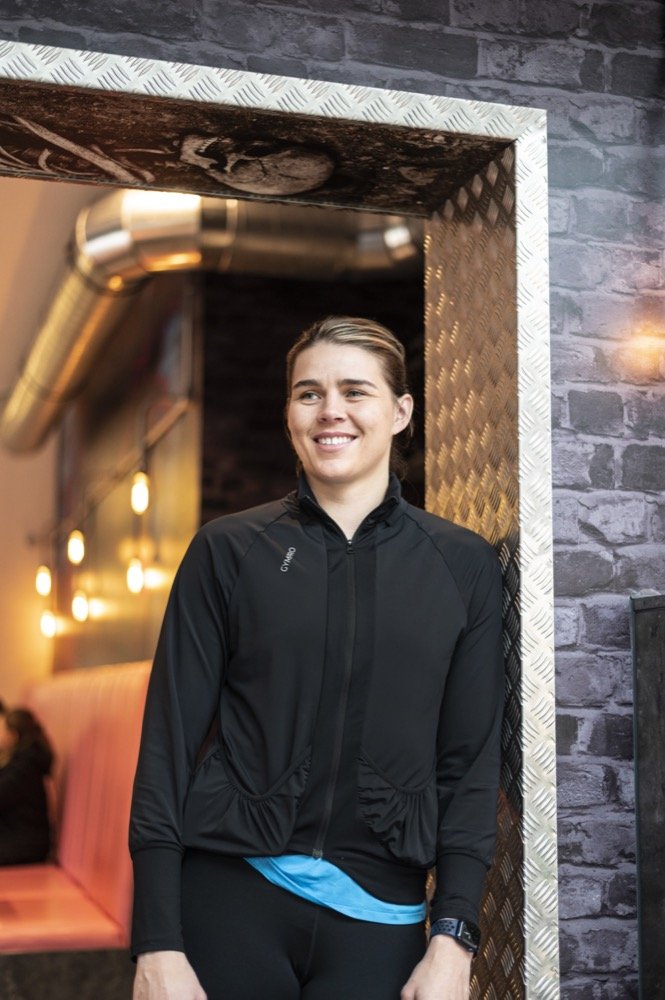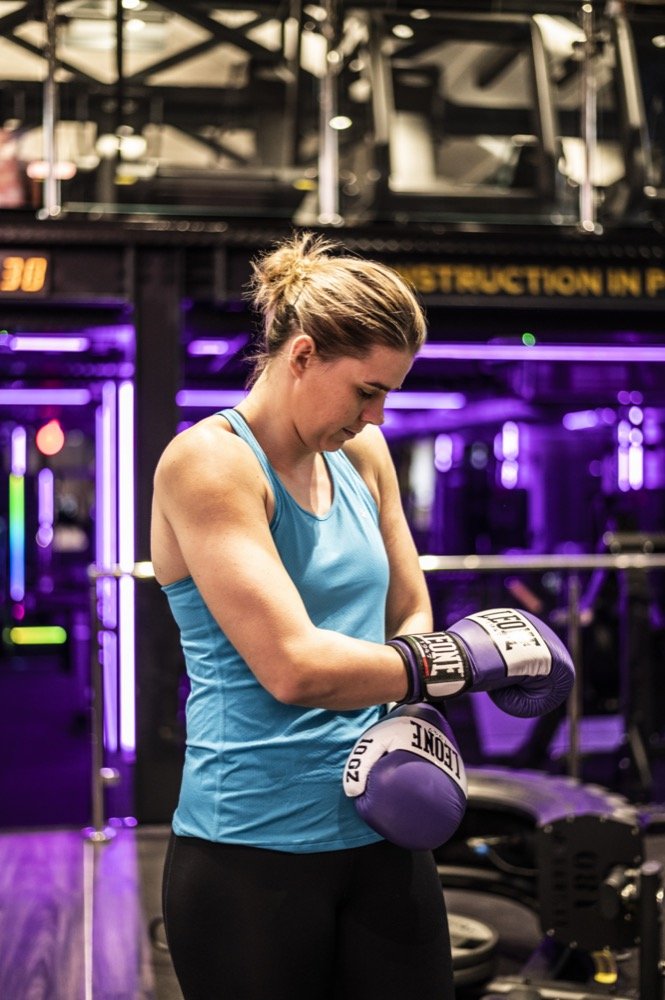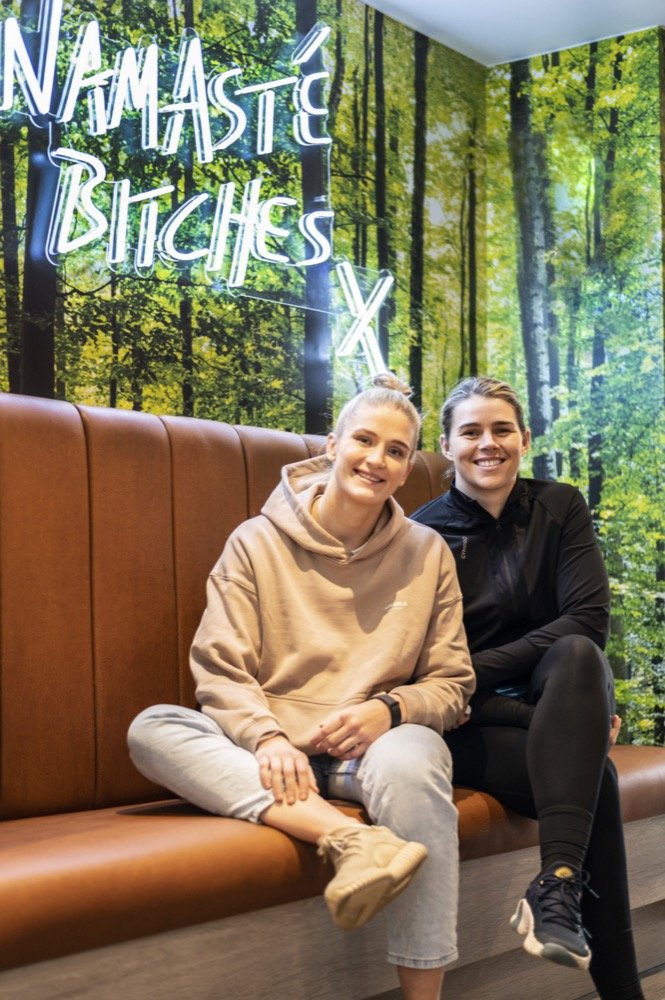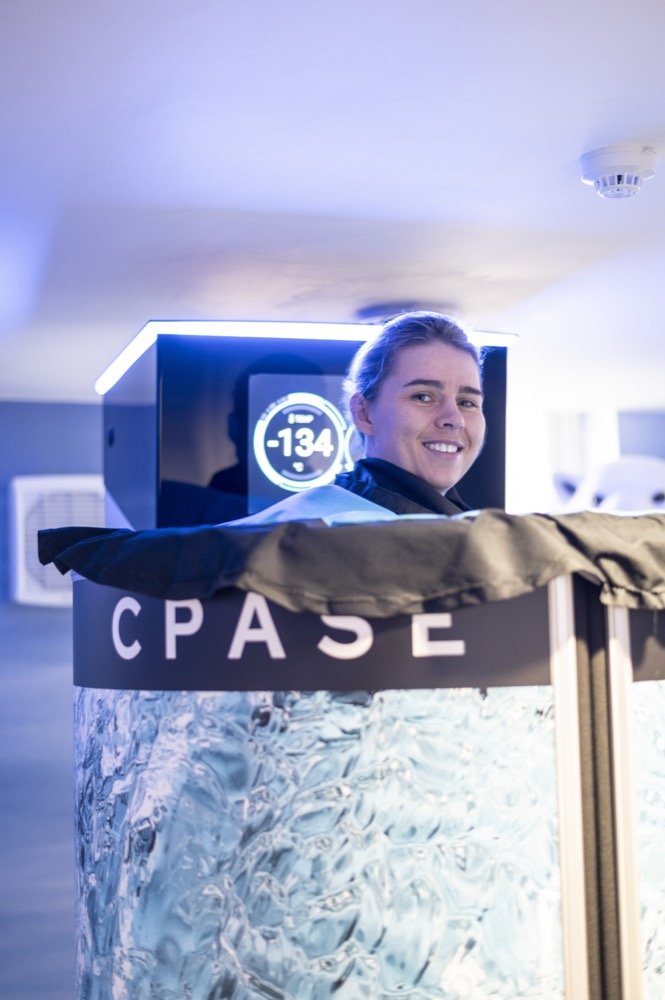Fighting Talk
Clare Stobart goes toe-to-toe with Savannah Marshall to find out more about her life inside and outside the ring
The most exciting boxing match I have ever watched was Savannah Marshall’s fight against Claressa Shields. It was outstanding and gave Sheilds the toughest fight of her career. Even as one of the biggest punches in the women’s code, Savannah remains grounded and humble despite her outstanding career. I had the honour of sitting down to learn more about this polite, kind and engaging Geordie athlete at the helm of women’s boxing.
You’re a northern girl who can pack a punch, what made you first step into the ring?
I’m originally from Hartlepool, which is an old shipping town. I became interested in boxing at 11 through curiosity as one of my neighbours boxed.
I went to Hartlepool Headland Boys Club where the coach was abrupt and said, “if you’ve come to mess about you can do one now!”, but from the first session I was hooked. It was me and about 30 boys and I fell in love with the competitive side of the sport; who could hit the bag the most or do the most press-ups? I never ever won anything, but really got into wanting to!
Prior to boxing, I only did sports at school, like hockey and netball, which I was really good at. When I joined the club, the coaches and boys didn’t want me there, they didn’t even speak to me. I joke now and say, “I never got the memo”. It was all I thought about, I would go to school, come home, go straight to the gym, have my tea, bath and bed. On repeat. I was obsessed with how it made me feel.
We went to spar with another club, but the coach wouldn’t let me in, yet now they have umpteen national female champions! Twenty years ago, most coaches didn’t want females there. Tim actually became my Amateur Coach, and we are still quite close, even now, he is like a father figure for over twenty years. He has daughters and didn’t want me there because he didn’t want to see me get punched in the face. Even the boys wouldn’t hit me because I was a girl, but then I’d hit them, and they’d soon join in.
As an amateur, I boxed for Great Britain. I represented us at 4 World Championships, 2 Olympic Games and the Commonwealth Games. I had 118 fights and I lost 15. By the age of 26, I had been fighting for 15 years and at this point, I had lost a lot of love for the sport. It became a job rather than a hobby.
I was ready to walk away, and then Floyd Mayweather came along and offered me a promotion to move to Las Vegas and be part of the Money Team. I recall thinking, “Wow, I’ll have a Lamborghini and a penthouse on the strip!”. It was the biggest shock of my life. I lasted 6 months and didn’t earn a penny because everything was so expensive. I recall saying, “I’m not paying $9 for Coco Pops!”. I ended up spending all my money and coming home. But making my professional debut with Floyd Mayweather in 2017, in Las Vegas on the Mayweather/Connor McGregor undercard was massive for me. It really felt like I was starting from the top.
You are one of the first pro female boxers to headline the O2. How do you feel to be a part of this incredible change in attitude towards female sport? Can you feel the support of the masses?
I have spent my entire career wanting to headline the O2. Initially, to have a female fight on TV was really rare, whereas now you can watch 2 or more. It is more normalised, female sports are everywhere. I’m even trained a little in Brazilian Ju-jitsu, and there are so many women in their 40s and 50s who just love it. It is so empowering.
There really is a women's revolution going on in sports at the moment. It is massive. I felt like first you had football, then rugby and now boxing. It’s the first time the whole country has been pushing female sport. Even broadcasters and brands are getting behind it. We all needed the whole country to come together to take us to the next level.
Speaking of your incredible success, what rituals or routines do you have to quell any pre-fight nerves?
I suffered really, really bad with my nerves. I always wore the same white Adidas boots, but then they got discontinued! By the time the last pair were finished, they literally had no grip left.
Pre-match, I would have a can of Red Bull, but as I got older and learnt about nutrition and realised it was probably the worst thing I could have done. It wasn’t uncommon for me to be sick or have a nervous rash all over my neck and face. My last amateur fight was in the Olympic Games in 2017 and I was beaten in the quarter finals. I remember thinking I don’t want to do this anymore. I missed out on Olympic medals, all down to my nerves. Since turning pro, my mindset now is that I was never meant to be here. I was going to quit, so this is all such a bonus for me. It’s crazy how a little tweak can just change your whole outlook. In my last fight, I was so excited.
Nothing really simulates boxing other than sparring. You wear headguards and bigger gloves, and whilst it isn’t a real fight, it does help you to work on game plan, which is a great way to quell pre-fight nerves.
What motivates you to stay in the ring?
All I’ve ever done is box. Now I’m a little bit older and at the back end of my career. I’m injured. I have arthritis in my elbows. Ninety per cent of me does it for the money, not a lot of people would admit that, but it’s true. Before you box, you’ve paid for sparring partners, coaches and gyms. Then you have to pay managers, promoters and taxes. Now I am a pro, I have sponsorships that help me to live month to month. In return, I advertise companies on my kit, sports bras, social media and things like that. My biggest sponsor at the minute is called Manjaros who originate from the North East of England where I’m from, but you can find them in Manchester too.
You now live in Cheshire, where is your favourite place to go?
I have recently moved to Holmes’s Chapel, which is great. I really like a routine. I like to be at home, at the boxing gym in Congleton and CPASE. I don’t go out of that triangle. But I love seafood, so ventured to Cibo in Wilmslow once.
As a valued member of CPASE - can you walk us through your usual routine?
The main reason I joined was for recovery. I have the boxing gym where I do all my training. Recovery methods like cryotherapy and hyperbaric oxygen therapy aren’t readily available so to have them on my doorstep is amazing. I use cryotherapy up to 4 times a week. Followed by 15 minutes both the traditional and infrared sauna, finishing with 30 minutes in the hydrotherapy pool.
I have sparred 3 times a week for 20 years, which is a lot when you're taking punches to the head. Which is a bit scary if you think about it. As I get older, I worry a lot more about my health. There have been times when I’ve come home with headaches, which really makes me think. It is a dangerous sport. People with long careers, even in other sports like football, have studies that show Alzheimer’s is a possibility in later life.
I first used an oxygen chamber 10 years ago when I was representing Team GB to speed up a stress fracture I had in my shin from running, it really helped with my injury recovery. Hyperbaric oxygen therapy is backed by evidence, which for me is the main thing. I don’t feel much during the session, but then I train really hard, so for me to notice changes is rare, yet the benefits are amazing. It isn’t just for athletes either, it has so many overall physical benefits, especially for brain health. I have a heavy training camp leading up to the next fight. This is one thing I do for myself; it is literally aiding my brain.
I started doing yoga classes in October, which really helped both my physical and mental well-being. Weekly, I do 3, 40 minutes strength and conditioning sessions, focussing on power and strength, essentially pushing. But with yoga, you’re holding your body weight in strange positions which is unnatural to me, and I really struggle! Whilst boxing is my main source of cardio, I use running for weight loss, before a fight, which is either 40 minute fat burners or sprints on the treadmill.
I often come to CPASE with April Hunter who is also a pro boxer but I try not to train with her because I always turn it into a competition. Our careers are at different stages, she is in the early stages of hers, with 5 or 6 fights a year, whereas I tend to only fight 2 or 3 times. Whilst she follows a similar recovery routine as I do, she is currently fighting more often, so is training harder than me.
How has your nutrition changed since turning pro? Do you follow a diet plan?
Nutrition is always evolving, it’s about seeing what works for you. The main thing for me is the elimination of refined sugar. And a strict routine which helps with weight loss. Not only eating the same things, but at the same times every day.
I used to fast before my morning session, but my body needed fast energy for it. Because I hadn’t eaten, and had no carbs in me, it would burn muscle instead, which you never want to do.
Now, I always eat before I train, then have protein powder afterwards. I enjoy scramble eggs on toast and tea usually consists of chicken or beef with rice and loads of vegetables. I overload on the veg - anything goes! I try to drink more than 2 litres of water a day. And a lot of coffee!
If I was to have a treat like dark chocolate or wine gums, it would be after training as my insulin has dropped, so it will bring it back up.
As a role model to young people, what would be your best piece of advice?
Enjoy it. Female boxing wasn’t really a thing when I started, it was more of a novelty and I was seen as a bit of a freak. I was only 13 when I was turned away from sparring at another club. I remember thinking I didn’t want to spar anyway, but I think anyone else would think I’m not meant to be here. I’m not welcome. Which could take you completely off the path of something you love. It’s all about loving what you do, for you, not other people. If you listen to negative comments, it will stop you from achieving amazing things.
Do negative comments affect you? How do you deal with them?
It used to bother me, but now I don’t read them. When I post on social media, I don’t interact. I have learnt people have got really short memories. Four months ago, I was the best thing to happen to female boxing, but because I wasn’t victorious, I am apparently rubbish. People only remember the last thing that they’ve seen. So I am more than confident that when I win my next fight in June, I will be the best thing in boxing again.
Where do you see yourself going next? Have you another fight?
I am fighting in my home city of Newcastle on the 10th June against Franchon Crews Dezurn who is the undisputed super middleweight world champion.
And finally, I know you get asked this a lot, but what would you go back and tell your younger self?
I wouldn’t actually say anything to her. I was painfully shy; I didn’t know how to communicate with people. I had 2 friends in school and didn’t speak to anyone else. Throughout my amateur career, my self-confidence really hindered it. I can confidently not being able to handle pressure lost me an Olympic gold medal. But now, all these bumps in the road and little things have helped me grow. Looking at that 15 year old girl who couldn’t even look at herself in the mirror, but loved boxing, I would just let her crack on. You are going to get there in the end.
If you’re interested in sponsoring Savannah please contact info@cpase.co.uk
Hungry for more?
Read up on the latest news, delicious eats, travel treats and seasonal style trends in FEATURES, or browse a curated selection of our FEATURED PRODUCTS, meander through our guide to the finest things to do in Cheshire and beyond in WHATS ON or partake in our COMPETITIONS.
About The CHESHIRE Magazine
We are the definitive guide to luxury lifestyle in the North West. Latest news, delicious eats, travel treats and seasonal style trends. The Cheshire Magazine is the largest luxury lifestyle title for the North West of England, dropping directly through the letterboxes of VIP subscribers from the Wirral to Greater Manchester plus all the villages and towns in between and digitally available as a subscription in print and digital on issuu.com worldwide. We specialise in connecting luxury brands to likeminded consumers.
If you are interested on how you can partner with The CHESHIRE Magazine, read more about us. Or get in touch to find out more about marketing, featuring or partnering with the Cheshire Magazine in print or online.







